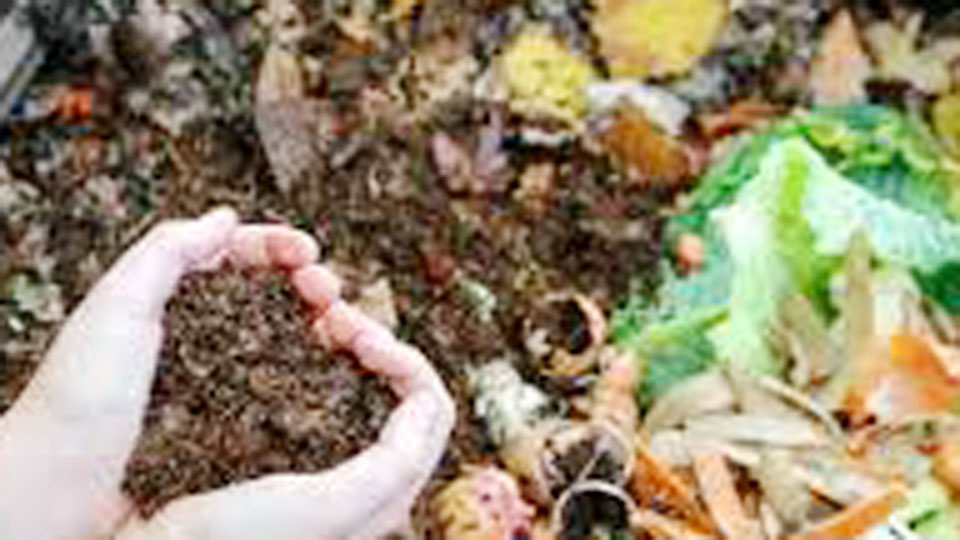When I first started composting, one of the biggest questions on my mind was, “How long does it take for vegetable waste to turn into compost?” I didn’t want to wait forever, but I also knew composting is a natural process that takes time.
The truth is, the time it takes depends on several factors, like the type of vegetables, composting method, moisture levels, and temperature.

Image by partstown
If you’re like me and want to make compost faster while keeping it rich and healthy, you’re in the right place. I’ll break it all down, from the timeline of composting vegetable scraps to ways you can speed up the process.
How Long Does It Take for Vegetable Waste to Compost?
Vegetable scraps can break down in as little as 3 weeks or take as long as 6 months to fully turn into compost. It all depends on how you compost.
| Composting Method | Estimated Time for Vegetable Waste to Break Down |
|---|---|
| Hot composting | 3 weeks – 2 months |
| Traditional compost pile | 2 – 6 months |
| Worm composting (vermicomposting) | 1 – 3 months |
| Bokashi composting | 2 – 4 weeks (before burying in soil) |
Some vegetables break down faster than others. Soft scraps like lettuce, cucumber peels, and tomatoes decompose in a few weeks, while denser scraps like potato peels and corn husks take longer.
Let’s go deeper into what affects composting speed and how you can control it.
What Affects the Time It Takes for Vegetable Waste to Compost?
Composting Method
The method you choose plays the biggest role in how fast your vegetable waste decomposes.
- Hot composting breaks down scraps the fastest because it generates high temperatures (130°F–160°F).
- Traditional composting takes longer because it relies on natural breakdown without heating up much.
- Worm composting (vermicomposting) speeds things up by using worms to eat the waste and turn it into compost quickly.
- Bokashi composting ferments scraps in an airtight container and then breaks down further when mixed with soil.
Size of the Vegetable Scraps
The smaller the pieces, the faster they break down. Whole carrots or corn cobs take a long time, while shredded carrot peels decompose quickly.
Moisture Levels
Compost needs the right amount of moisture. If it’s too dry, decomposition slows down. If it’s too wet, it can rot and smell bad. A moisture level similar to a damp sponge is perfect.
Temperature
Compost breaks down faster in warmer temperatures. That’s why hot composting works so well—it raises the internal temperature to speed up decomposition. In colder climates, composting slows down.
Oxygen and Aeration
Vegetable waste decomposes faster when you turn the compost pile regularly to allow oxygen in. If you let it sit without mixing, it takes longer to break down.
How to Speed Up the Composting of Vegetable Waste
If you don’t want to wait months for your compost to be ready, there are a few tricks to speed things up.
Chop Up Vegetable Scraps
Cutting scraps into smaller pieces increases the surface area, making it easier for microbes to break them down.
Use a Hot Composting Method
To create hot compost, layer your vegetable waste with browns (like dry leaves or shredded paper) and greens (like grass clippings or fruit peels). Keep the pile at least 3 feet wide and 3 feet high to retain heat.
Keep the Right Balance of Greens and Browns
A good compost mix should have two to three parts browns (carbon-rich materials) for every one part greens (nitrogen-rich materials). Too many greens can make the compost pile too wet, while too many browns slow decomposition.
| Type | Examples |
|---|---|
| Greens (Nitrogen) | Vegetable scraps, fruit peels, coffee grounds, grass clippings |
| Browns (Carbon) | Dry leaves, shredded newspaper, cardboard, sawdust |
Turn the Compost Pile Regularly
Mixing the pile every week or two adds oxygen and helps break down scraps faster.
Keep the Right Moisture Level
If the compost pile is too dry, spray it lightly with water. If it’s too wet, add more browns to soak up moisture.
How to Tell If Your Compost is Ready
Finished compost is dark, crumbly, and smells earthy. If you can still see vegetable scraps, it’s not fully broken down yet. To test it, scoop up a handful—if it’s light and doesn’t smell like rotting food, it’s ready to use.
Mistakes That Slow Down Composting
Adding Too Many Greens Without Enough Browns
This creates a wet, smelly pile. Always balance with browns like leaves or shredded paper.
Not Turning the Pile
A stagnant compost pile takes twice as long to break down.
Composting the Wrong Materials
Avoid adding dairy, meat, or oily foods, as they attract pests and slow down decomposition.
Letting the Compost Pile Get Too Dry
Decomposition stops when the pile is too dry. Lightly mist with water if needed.
Conclusion
Vegetable waste can turn into compost in as little as 3 weeks or take up to 6 months, depending on how you manage your compost pile.
The best way to speed things up is to cut up scraps, maintain the right moisture level, turn the pile often, and use a good mix of greens and browns.
If you’re patient and follow the right composting techniques, you’ll get rich, healthy compost that your garden will love. Composting vegetable waste isn’t just a great way to reduce waste—it also helps build nutrient-rich soil for plants to thrive.
FAQs
How long does it take for vegetable peels to decompose?
Most vegetable peels break down in 2-6 weeks, depending on composting conditions.
Can I compost cooked vegetables?
Yes, but avoid oily or heavily seasoned foods as they can slow down composting and attract pests.
Does freezing vegetable scraps speed up composting?
Yes! Freezing breaks down cell walls, helping scraps decompose faster when added to the compost pile.
What vegetables take the longest to compost?
Corn cobs, avocado pits, and thick potato skins take the longest, sometimes 6 months to a year.
Can I compost vegetable waste without a bin?
Yes, you can make a compost pile directly on the ground, but a bin helps contain it and speed up decomposition.
With the right approach, composting vegetable waste is simple and rewarding. Your garden will thank you for the nutrient-rich soil, and you’ll love the fact that you’re reducing food waste in a natural, eco-friendly way.

I’m Marissa Lynn, the proud author behind GardeningProperty.com! With a deep-rooted passion for all things green and growing, I’ve dedicated years to mastering the art and science of gardening.
From nurturing vibrant flowerbeds to cultivating thriving vegetable gardens, I love sharing practical tips, creative ideas, and proven techniques to help others create their dream outdoor spaces.